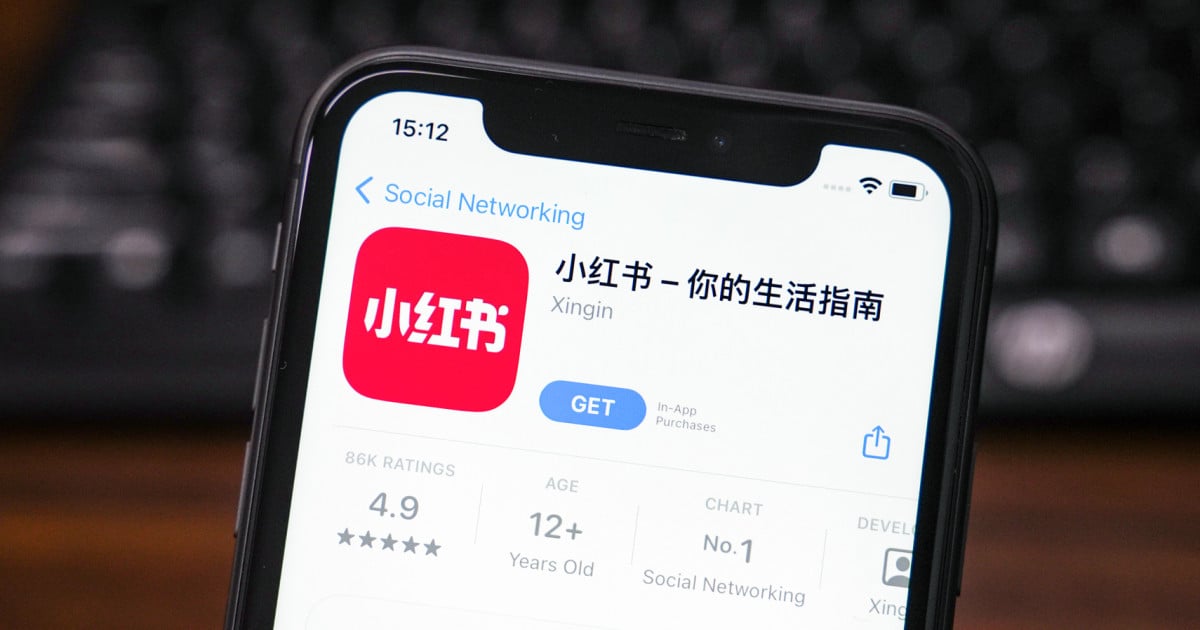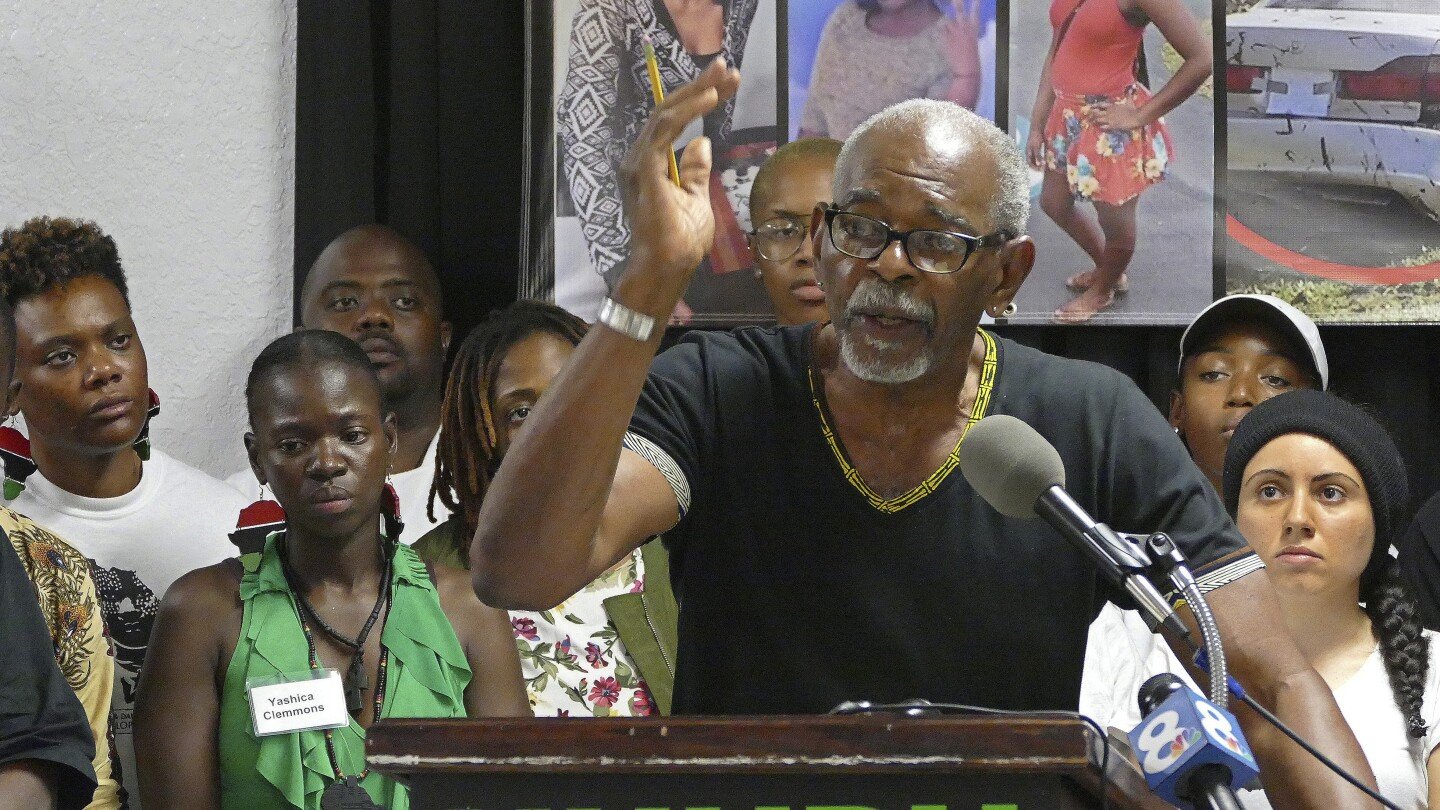Interested in helping with a community I manage? Interact with posts and DM.
Mantra: “We should focus our actions, time, and resources on Direct Action, Mutual Aid, and Community Outreach… No War but Class War!”
FYI: Human, check reCAPTCHA log /s
- 43 Posts
- 112 Comments

 8·1 month ago
8·1 month ago“I was playing heroines, but in real life I wasn’t earning a living,” said Shibata, now 60. These days, she also works as a home organizer, helping people de-clutter. “Voice acting as a profession just doesn’t pay,” she said.
Even in a country where a culture of overwork permeates a wide range of businesses, the anime industry is notorious for the grueling hours that workers put in. Animators in their early 20s earn less than 2 million yen ($12,948) a year, according to industry data, compared with over 3 million yen for a person of a similar age living in Tokyo. That’s less than half of what US entry-level animators earn, websites like Glassdoor show. Creative workers also complain of late and uncertain payments.
Some, though, sense change is afoot. A working group for the United Nations Human Rights Council last year called out Japan’s anime industry for its poor treatment of workers, along with cases of sexual violence and harassment in the country’s entertainment business. In a May report, the group referred to “excessively long working hours” and low pay, as well as a disregard for creative workers’ intellectual property rights.
Acknowledging such worries, lawmakers passed a new law that took effect in November to boost protections for freelance workers. Late last month, regulatory officials at Japan’s Fair Trade Commission launched a study on labor practices within the anime industry and invited workers to submit complaints.
Once considered a geeky, so-called otaku obsession, anime is now considered mainstream. In 2020, when the pandemic brought Hollywood production to a halt, Demon Slayer: Mugen Train topped global box office sales at over $470 million. In Japan, around 400 anime titles are now produced for TV and theaters every year, attracting dedicated fans who go on to buy related merchandise. The genre’s popularity among global streaming audiences has also prompted a flurry of acquisitions. Sony, which bought anime streaming service Crunchyroll in 2021, became the largest shareholder of anime publisher Kadokawa Corp. in an alliance announced late last year. Movie producing and distributing company Toho Co. bought US-based anime distributor Gkids Inc. for an undisclosed amount to strengthen the Japanese firm’s US reach.
That later evolved into the current system in which studios work within budgets set by powerful committees of publishers, toymakers and businesses which finance the series and share royalties. Production companies outsource work to small anime studios and voice actors’ agencies, which in turn hire even smaller companies and freelancers. This helps companies work on multiple series at once and mitigate any potential losses. As a result, revenue is spread thinly, and it can take months for compensation to filter through to illustrators and voice actors.
Actors often wait six months or longer to get paid, according to Nobunari Neyoshi, who until last year ran a voice actor agency alongside his sound-production business for a decade. “Violations of subcontracting laws are rampant,” said 47-year-old Neyoshi, adding that sometimes actors don’t get paid at all. He closed his voice-acting business due to poor sales.
Workers are also often employed over the phone or via messaging apps without formal contracts, leaving it unclear how much, or even whether, they’ll get paid. “It’s common across the industry to be asked to start working on something even before any paperwork is done,” said Aina Sugisawa, a 24-year-old trainee at Tokyo-based studio TMS Entertainment Co., part of Sega Sammy Holdings Inc. and known for hit series like Detective Conan.
Unlike in Hollywood where a strike by screenwriters and performers brought movie and TV production to a halt in 2023, the majority of Japanese voice actors and illustrators don’t belong to labor unions. Numako, the former union official, says he’s always struggled to convince colleagues to join him.
The new law on freelancers forces companies to provide written contracts, including details on pay, to all workers. Businesses are now prohibited from demanding extra work without promising additional pay and are also required to pay workers within 60 days. The government is stepping up surveillance, and regulators are also inviting workers to blow the whistle on law-breaking activity.
One underlying problem, industry insiders say, has been the sheer number of people willing to endure poor conditions just to be involved in an art form they’ve loved since childhood. Breaking into the industry is still highly competitive; manga and anime illustrators regularly rank among the top dream professions of school children. Some blame themselves for their lack of financial success: there’s always a more senior job to aspire to. Key frame animators are responsible for drawing crucial images at the start and end of major scenes and earn more than those drawing sequences in between. With skills and experience, they can also move on to better-paid jobs including directors. But such senior roles are few. The field of voice acting can be even more competitive.
Shrinking demographics and technological innovation including AI are also seen bringing change — as well as an existential challenge. Japan Research Institute expects a labor shortage among anime illustrators, estimating their number to decline to roughly 5,600 by 2030 from around 6,200 in 2019. Production studios have already been turning to overseas labor, with Toei Animation sending 70% of its animation work to a branch in the Philippines, even though crucial processes remain in Japan. Many fear that AI will replace jobs, particularly at the entry level, turning away younger artists.
Real change, though, will require workers to act rather than expecting laws to protect them automatically, said Yasunari Yamada, a lawyer with expertise in freelance work. “Freelancers need to recognize that they’re business operators, and take action if they think something’s wrong,” he said.
Some are starting to speak up. Shibata, the voice actor, recently learned that a video game using her voice was reissued a few years ago without paying her royalties. After decades of work under her belt, including key roles in popular series like Saint Seiya, a story about mystical warriors, she complained, prompting the publisher to agree to a payment.
“People have just been clinging to whatever job they get, because if you say something negative you’re put out to pasture,” she said. “Everyone’s been putting up with it.”

 4·1 month ago
4·1 month agoFYI:
This was posted by a new account, around 9 mins old.
This is the first post they made. No comments, yet.

 241·2 months ago
241·2 months agoAdvocacy group America’s Voice believes that U.S. rural and agricultural regions will likely be the hardest hit by Trump’s immigration policies, which threaten mass detention and deportation of millions.
Border Patrol agents in unmarked vehicles have allegedly been carrying out racially profiled raids in California’s agricultural center after stalking immigrants outside stores, CalMatters reports.
Estimates suggest that between 400,000-800,000 people are farmworkers in California, which is responsible for about 13% percent of the country’s agricultural production value that is worth more than $25 billion, according to the U.S. Department of Agriculture.
The USDA estimated that between 2020-2022 about 32% of crop farmworkers were U.S. born, 7% were immigrants who had obtained citizenship, 19% were authorized immigrants, mostly permanent residents or green-card holders and the remaining 42% were unauthorized to work. The majority of these workers have Latino backgrounds.
The AV report noted how anti-immigrant crackdowns in the past decade have led to devastating impacts for farms, such as crop rot, across several states, including Alabama, Florida and Georgia.
"The unmarked cars, the racial profiling, abusive harassment, and wide dragnets are likely just the tip of the spear of the incoming administration and the signs are unmistakable: there are ‘enemy invaders’ within threatening everything ‘real Americans’ hold dear, and the federal government will be interested in critical oversight in how local officials deal with the ‘enemy.’
It warns, "The tone and culture they set will be just as important as the policies they begin to implement. As individual law enforcement and vigilantes feel empowered to take drastic action with little concern for consequences or oversight, our situation could get out of hand quickly and mass family separations will likely begin again. And, as we saw, the impacts will be felt by families, communities, businesses – and, frankly, all of us.

 53·2 months ago
53·2 months agoFor those interested in learning about Operation Paperclip:
Although he officially sanctioned the operation, President Harry Truman forbade the agency from recruiting any Nazi members or active Nazi supporters. Nevertheless, officials within the JIOA and Office of Strategic Services (OSS)—the forerunner to the CIA—bypassed this directive by eliminating or whitewashing incriminating evidence of possible war crimes from the scientists’ records, believing their intelligence to be crucial to the country’s postwar efforts.
Although defenders of the clandestine operation argue that the balance of power could have easily shifted to the Soviet Union during the Cold War if these Nazi scientists were not brought to the United States, opponents point to the ethical cost of ignoring their abhorrent war crimes without punishment or accountability.[1]
I just posted a video of Annie Jacobsen talking about Nuclear War, she also wrote a book about Operation Paperclip.[2]
In the days and weeks after Germany’s surrender, American troops combed the European countryside in search of hidden caches of weaponry to collect. They came across facets of the Nazi war machine that the top brass were shocked to see, writer Annie Jacobsen told NPR’s All Things Considered in 2014. Jacobson wrote about both the mission and the scientists in her book, Operation Paperclip: The Secret Intelligence Program That Brought Nazi Scientists To America.
“One example was they had no idea that Hitler had created this whole arsenal of nerve agents,” Jacobsen says. “They had no idea that Hitler was working on a bubonic plague weapon. That is really where Paperclip began, which was suddenly the Pentagon realizing, ‘Wait a minute, we need these weapons for ourselves.’"[3]

 12·2 months ago
12·2 months agodeleted by creator

 21·2 months ago
21·2 months agoTrue, thanks for clarifying!

 11·2 months ago
11·2 months agologin anonymously
What does this mean?
Is it similar to Chrome’s “Incognito” mode?

 51·2 months ago
51·2 months agoDamn, Aurora is linked to google and you need to login to get apks, unlike F-Droid.
Aurora Store enables you to search and download apps from the official Google Play store. You can check app descriptions, screenshots, updates, reviews, and download the APK directly from Google Play to your device. To use Aurora Store, you need to have a Google Play account, and log in to your Google Play account when you first open and configure Aurora Store.
(Alternatively Aurora Store also allow you to login anonymously)
Unlike a traditional app store, Aurora Store does not own, license or distribute any apps. All the apps, app descriptions, screenshots and other content in Aurora Store are directly accessed, downloaded and/or displayed from Google Play.
Aurora Store works exactly like a door or a browser, allowing you to log in to your Google Play account and find the apps from Google Play.
Please note that Aurora Store does not have any approval, sponsorship or authorization from Google, Google Play, any apps downloaded through Aurora Store or any app developers; neither does Aurora Store have any affiliation, cooperation or connection with them.
F-Droid is cool, but limited with apks.
F-Droid is an installable catalogue of FOSS (Free and Open Source Software) applications for the Android platform. The client makes it easy to browse, install, and keep track of updates on your device.

 41·2 months ago
41·2 months agoYes, this is just another policy that hinders the working class, the duopoly does like their police state.
Anyone have any thoughts on APKPure as an alternative?

 52·3 months ago
52·3 months agoThe shot is at a steep angle where it hits the helmet, ricocheting. You can see another hole a few inches back from the initial ricochet.
Saving Private Ryan - Lucky bastard! | 00:11 | https://youtu.be/bTmQA4DKYkg
Is The US Army’s New Helmet a Complete Disaster? The IHPS | 18:17 | https://youtu.be/SwDoWSkiGZ4
Notable comment:
@nurse-dude | 1 year ago
Another fantastic demonstration of how a ballistic helmet’s primary function is NOT protection from rifle/pistol rounds but rather a secondary function. They are primarily designed to protect from shrapnel and blunt force trauma.

 12·3 months ago
12·3 months agoWow, awesome!
If interested, you should look into the billionaires that own a good amount of California water, and the politicians that help them.
Videos:
More Perfect Union, 08:08: https://lemmy.world/post/24266937
Sabby Sabs, 33:29: https://lemmy.world/post/24258142
Briahna Joy Gray, 30:26: https://lemmy.world/post/24260706
TIL
YOU CAN’T CUT BACK ON FUNDING! YOU WILL REGRET THIS! is a catchphrase originating from the video game Sim City 2000, where it is shouted towards the player (the mayor) by the transportation advisor if he attempts to cut transit funding.
While it isn’t the character’s name, he is sometimes referred to as “Norm” due to his similar appearance to Norm Abram of This Old House.[9][1]
This Old House, The New Yankee Workshop, and Ask This Old House are great shows to learn DIY skills!
For those interested in Norm:
On May 19, 2022, it was announced that after 43 years, Abram would retire from the show. A one hour special titled The House that Norm Built aired online and on PBS stations on October 3, 2022, surveying his career with the program.[11][12]
In 1988, Morash planned to launch a spinoff of This Old House called The New Yankee Workshop, featuring Abram. They needed a convenient place to videotape, and used the shop in the small building that Abram built in 1979 in Morash’s backyard.[10] The shop’s layout and equipment were expanded and adapted to match Abram’s preferences, in a space measuring 36 by 26 feet (11.0 by 7.9 m).[13][14] The New Yankee Workshop was first aired in 1989 with Abram as the host.[4] The program showcased furniture or other projects and emphasized classic, elegant designs, made using a combination of simple handtools and newer power tools and equipment.[4] The show aired for 21 seasons on PBS, then was suspended indefinitely as Abram decided to focus on other projects.[10][15][16]
He has also contributed to efforts to train younger students in the building trades, such as the Generation NEXT apprenticeship program.[10]
More recently, he bought a new old house in Rhode Island near the coast, where he plans to build a new woodworking shop, and he is also interested in learning shipbuilding.[16][23][2]
He is still going strong, yt video 3 days ago:
Website: https://www.newyankee.com/
Youtube: https://youtube.com/@newyankeeworkshop
Edit: fixed last quote, and fixed second citation format

 48·4 months ago
48·4 months agoOh, you reminded me to check out Yanis Varoufakis’s latest videos!
He talks of imperialism and the differences between China and the USA.
Thanks for the meme!
For those interested: https://lemmy.world/post/23027760

 63·4 months ago
63·4 months ago“I do apologize for any strife or trauma, but it had to be done,” the Ivy League graduate reportedly wrote in a manifesto admitting to killing UnitedHealth CEO Brian Thompson. “These parasites had it coming.”
Luigi Mangione—the 26-year-old man arrested in Pennsylvania Monday on gun charges and suspected of last week’s assassination of UnitedHealth CEO Brian Thompson—was carrying a manifesto condemning insurance industry greed, police said after his apprehension.
New York Police Department (NYPD) Chief of Detectives Joseph Kenny said Mangione was in possession of a 9mm handgun—possibly a ghost gun made with numerous parts or a 3D printer—the type used to kill Thompson, as well as a silencer and what he described as an anti-corporate manifesto.
Three bullet casings were inscribed with the words “deny,” “defend,” and “depose”—a phrase commonly used by critics to describe insurance industry tactics to avoid paying patient claims. UnitedHealth, the nation’s biggest private insurer, is notorious for denying more claims than any other insurance company.
Mangione’s social media posts run the gamut from praising the opinions of right-wing figures like Elon Musk and Tucker Carlson to leaving positive reviews on Goodreads for books including Dr. Seuss’ cautionary environmental tale The Lorax and the manifesto of Theodore Kaczynski—better known as the Unabomber.
“He had the balls to recognize that peaceful protest has gotten us absolutely nowhere and at the end of the day, he’s probably right,” Mangione controversially opined of Kaczynski, whom he called “an extreme political revolutionary.”
“When all other forms of communication fail, violence is necessary to survive,” he asserted.

 73·5 months ago
73·5 months ago“The FBI is aware of the offensive and racist text messages sent to individuals around the country and is in contact with the Justice Department and other federal authorities on the matter,” the FBI said on Thursday.
FBI Link: https://www.fbi.gov/news/press-releases/fbi-statement-on-offensive-and-racist-text-messages
Brian Hughes, of the Trump campaign, told NBC that they would take legal action “if we can find the origin of these messages which promote this kind of ugliness in our name.
“President Trump built a diverse and broad coalition of support, with voters of all races and backgrounds,” he said in a statement to NBC. “The result was a landslide victory for his commonsense mandate for change. This will result in a second term that is beneficial to every working man and woman in our nation.”
True!
I wonder if the numbers will have an impactful change when comparing the people that said they would move out of the U.S. due to 2016/2020/2024.
That would require money, which most of the working class does not have.
The people spewing this rhetoric are those higher up the food chain; moving out of the US was also said in 2016 and 2020.
Edit: more info
TIL
But what does it take to move to Canada? Is it even possible for Americans? And how difficult would it be? In short, it’s not an easy journey, but it can be done.
To gain permanent residency and, eventually, citizenship, the process is complicated. You must be 18 years old. Then, you can apply several different ways — via specific provinces, via a special entrepreneur route, with help from a family member or spouse already living in Canada or through Québec, which has special immigration requirements, Business Insider reported.
The more skills you have, including fluency in English and French, the higher you’ll “score” on applications, making you all the more likely to gain residency.
Skilled workers are able to apply for residency via a fast track, called the Express Entry system. Under that, skilled workers are transitioned into new roles in the country and given scores based on their talents and job prospects when they apply that then contribute to where they’re placed and if they’re placed. Those with top scores are given permanent residency on a Canadian work visa.
Once a permanent residence, you’re entitled to healthcare coverage and are able to work, study and travel anywhere in the country. But, you can’t vote, run for office or hold certain jobs with top security clearances.
Permanent residents could lose their status if they aren’t in Canada for at least 730 of the days during the first five years of their tenure, and to continue it after five years, they must meet that requirement and then declare their intent to stay Canadian. The only exception is for Crown servants or their families working on behalf of Canada abroad.
Those requirements must be met plus some to become a citizen. Permanent residents have to be physically present in Canada for at least 1,095 days in the first five years of their permanent residency — more specifically before the date their applications are signed. Consistency is key — inconsistency in living and simply being in Canada can be a red flag to immigration officers reviewing citizenship applications.
Income tax filings have to be sent for three years of that five-year period leading up to the date of the application signing, which is to show the Canadian authorities that the individual’s job is legit. You must also speak English or French, not necessarily fluently, but you have to be able to prove that you can make small talk in one of those languages, including giving directions and using basic grammar and being able to describe yourself.
A general knowledge of Canada is also required, including history, values and other institutions and symbols of Canada. The test is written but can be delivered orally.
Even then, there are a number of reasons why an application can be denied despite meeting the aforementioned requirements. Any crimes committed within four years of the application submission are likely to disqualify a prospective citizen.
X users flocked to the social media platform, which is owned by Elon Musk, to vent their frustrations and discuss their plans. Many joked about moving to Canada amid the results, like user @desjjong, who wrote, Chat if yall fumble this country’s election im moving to Canada or sum s—."[1]

 35·6 months ago
35·6 months ago
Multiple U.S. broadband providers, including Verizon, AT&T, and Lumen Technologies, have been breached by a Chinese hacking group tracked as Salt Typhoon, the Wall Street Journal reports.
It is unclear when the intrusion occurred, but WSJ cites people familiar with the matter, saying that “for months or longer, the hackers might have held access to network infrastructure used to cooperate with lawful U.S. requests for communications data.”
According to the WSJ, the attack was discovered in recent weeks and is being investigated by the U.S. government and security experts in the private sector.
Salt Typhoon has been active since at least 2019 and is considered a sophisticated hacking group focusing on government entities and telecommunications companies typically in the Southeast Asia region.
Security researchers also found that the threat actor attacked hotels, engineering companies, and law firms in Brazil, Burkina Faso, South Africa, Canada, Israel, France, Guatemala, Lithuania, Saudi Arabia, Taiwan, Thailand, and the United Kingdom.
The hackers usually obtain initial access to the target network by exploiting vulnerabilities, such as the ProxyLogon vulnerabilities in Microsoft Exchange Server (CVE-2021-26855, CVE-2021-26857, CVE-2021-26858, and CVE-2021-27065).
In previous attacks attributed to Salt Typhoon/Ghost Emperor, the threat actor used a custom backdoor called SparrowDoor, customized versions of the Mimikatz tool for extracting authentication data, and a Windows kernel-mode rootkit Demodex.
Chinese APT hacking groups have been increasingly targeting U.S. and European networking devices and ISPs in cyberespionage attacks.
In August, cybersecurity researchers at Lumen’s Black Lotus Labs disclosed that the Chinese threat actors known as “Volt Typhoon” exploited a zero-day flaw in Versa Director to steal credentials and breach corporate networks. During these attacks, the threat actors breached multiple ISPs and MSPs in the U.S. and India, which is not believed to be related to the recent breaches.
In September, Black Lotus Labs and law enforcement disrupted a massive Chinese botnet named “Raptor Train” that compromised over 260,000 SOHO routers, IP cameras with malware. This botnet was used by the “Flax Typhoon” threat actors for DDoS attacks and as a proxy to launch stealthy attacks on other organizations.
While these attacks have been attributed to different Chinese hacking groups, they are believed to operate under the same umbrella, commonly sharing infrastructure and tools.
Edit5: fixed [1][2] format
We may be dead inside, yet we keep on going.
[1] https://genius.com/50-cent-many-men-wish-death-lyrics ↩︎
[2] Alt. Link: https://archive.ph/IERUg ↩︎

 2114·7 months ago
2114·7 months agoWrong question and framing.
Israel’s goal is not to get rid of Hamas or their leadership.
Their real goal has been to continue the genocide of the Palestinian people so as to take 100% control of the Palestinian land and to kickout the natives.















I am against conscripts.
We must always be highly critical of those with power, money, and influence; especially governments and politicians (and the oligarchs that control/sway them).
I have known about those videos being posted on twitter.
I shared some of them last year, it is great that people are escaping the echo cambers we created for ourselves!